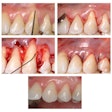Despite thousands of published studies on the role of midlevel providers (MLPs) in dentistry, there is not enough scientific evidence to support the use of nondentists performing irreversible surgical procedures, according to a yearlong systematic review conducted by the ADA (Journal of the American Dental Association, January 2013, Vol. 144:1, pp. 75-91).
The systematic review sought to answer this question: In populations where nondentists conduct diagnostic, treatment planning, and/or irreversible surgical dental procedures, is there a change in disease increment, untreated dental disease and/or cost-effectiveness of dental care?
A search of 13 databases yielded 7,701 potentially applicable citations, eventually yielding 18 studies that met the review's inclusion criteria. Of the 18 studies, some were published as early as the 1950s and seven were published prior to 1980. Of these studies, the current study authors judged 12 to be at high risk of bias, five at moderate risk, and one at low risk. Notably, they found no randomized, controlled studies and no data regarding cost-effectiveness, irreversible diagnostic procedures, or diseases other than caries.
The authors found that in select groups in which participants received irreversible dental treatment from teams that included midlevel providers, caries increment, caries severity, or both decreased across time; however, they found no difference in caries increment, caries severity, or both compared with those in populations in which dentists provided all irreversible treatment.
In select groups in which participants had received irreversible dental treatment from teams that included midlevel providers, the study authors found a decrease in untreated caries across time and a decrease in untreated caries compared with that in populations in which dentists provided all treatment. This is likely a result of a greater number of personnel (nondentists) available to treat caries, they noted.
"As the results of this review have shown, there is a paucity of high-quality literature to inform the questions regarding the effect these providers have on overall health outcomes and cost-effectiveness," wrote lead author Timothy Wright, DDS, MS, in an accompanying commentary. Despite this limited evidence, new workforce models incorporating midlevel providers are being launched without robust evaluation plans or consideration of the environment needed for success, he added.
"To put it simply, the report shows that if more personnel are treating cavities, more cavities get treated," stated ADA President Robert Faiella, DMD, MMSc, in a press release. "But that does nothing to reduce the number of people getting cavities. And it points [to] the futility of a delivery system based on surgically treating disease that could have been prevented."



















